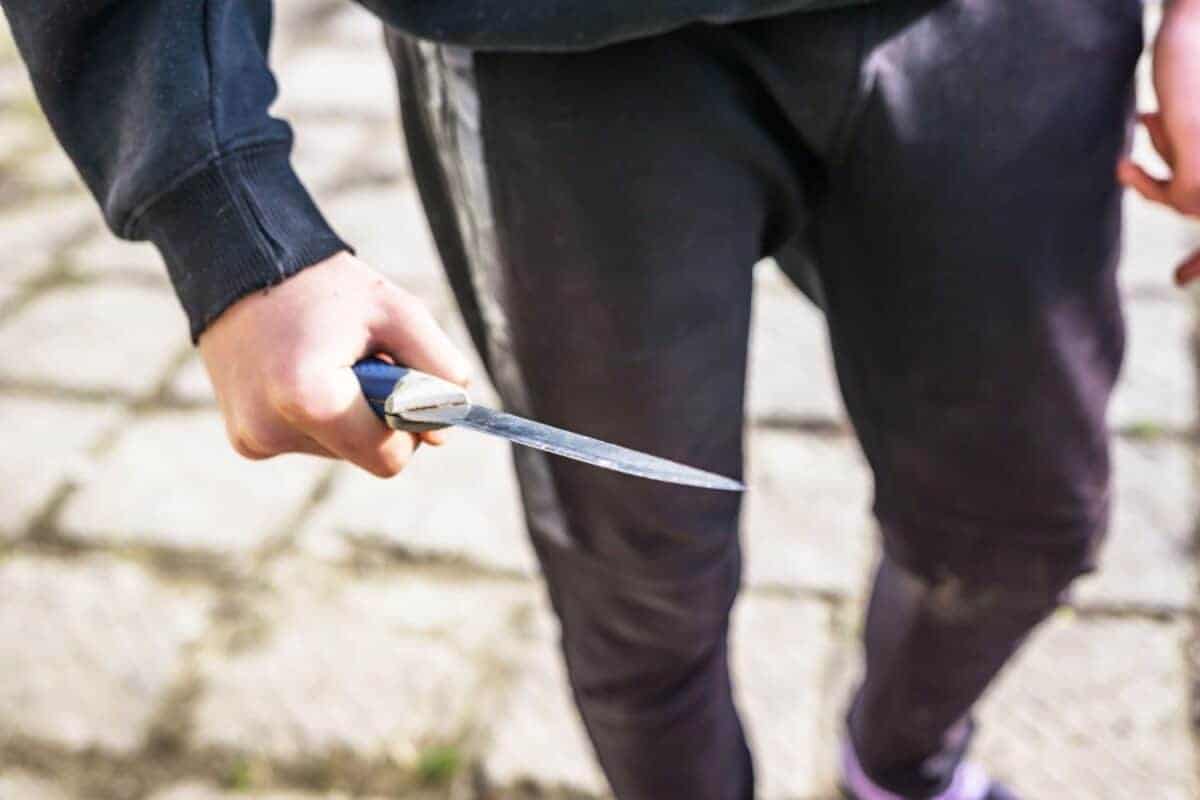Pupils and teachers face rising violence. Experts say societal issues, absent parenting, and mental health neglect are at the root.

“School rage” is becoming almost impossible to control in the country’s schools, which are becoming increasingly unsafe because of violence – from gang activity and bullying to assaults on teachers and sexual violence.
The violent incidents include pupil-on-pupil brutality, as well as attacks on teachers, which are growing in number and severity.
Incidents have been increasing over the past year, worrying both the education authorities and teachers’ organisations.
The blame game
Dr Rudzani Mhlari, a psychology lecturer at the School of Social Sciences at the University of Mpumalanga, said it was difficult to say who should be blamed for the violent behaviour of the pupils.
“However, looking at all the recent cases, most – if not all – are happening in the townships. So, this becomes an ecosystem challenge…
ALSO READ: Gauteng education MEC praises police after students arrested at Tsakane Secondary School
“What are these kids exposed to within their communities holistically? What are the common violence challenges in the areas? Their homes, community, and schools? When that is determined, an informed intervention can be developed to assist with this problem,” Mhlari said.
“The kids who have shown violent behaviour could be facing some underlying psychological problems that need to be investigated. This can be another factor that could be looked at.”
Education will help to deal with problems before things spiral out of control, she said. Teachers need to be educated on what to do when there is an incident.
“That could help to keep them safe when confronted with this kind of behaviour.”
Complex issue
Teddy Bear Foundation clinical director Shaheda Omar said the rise of violent behaviour among pupils – including aggression and even the use of weapons to harm or kill other pupils – was a deeply complex issue.
ALSO READ: Roodepoort school principal stabbed as MEC condemns violence
“It can’t be reduced to a single cause or blamed entirely on one group. However, there are several contributing factors that are consistently identified by psychologists, teachers and sociologists.
“We need to break that down into what drives children to become aggressive and violent,” Omar said.
“Some contributing factors are exposure to violence at home, neglect, or a history of being victimised or abused. It could affect a child’s emotional development.”
Trauma and unresolved mental health issues could certainly contribute to an outburst of aggression, she said.
“And then we have to also look at depression, anxiety and disorders like conduct disorder or oppositional defiant disorder, which are often linked to violent behaviour.
ALSO READ: Education MEC blames management of Pretoria school for pupil’s stabbing
“Being bullied or excluded can lead to marginalised rage and a desire for retaliation. And that’s exactly what we are seeing at the schools that we are working with currently.”
Omar said sometimes children try to emulate what they see on TV and online platforms.
Parents or guardians fail to provide guidance, emotional support, discipline, or protection, she said.
“Schools also overlook bullying, failing to identify atrisk pupils or lacking adequate mental health resources.”
‘Rooted in broken homes’
Remoneilwe Diale, spokesperson for The Lady of Peace Foundation, an organisation fighting bullying in schools, said: “These tragedies do not happen in isolation. They are rooted in broken homes, absent parenting, social pressures, and a society where violence has become normalised.
ALSO READ: Safe schools? Not in SA
“Social media now fuels these fights, turning pain and conflict into entertainment.
“Our schools, which should be safe places, are becoming battlegrounds. Blaming only the pupils will not solve the problem. Everyone must take responsibility.
“Parents must play a stronger role in raising children with discipline and respect. Schools need more counsellors, mentors and safety measures.
“Communities must come together to guide the youth, while authorities must strengthen measures to protect teachers and pupils.
“If we stand by and do nothing, we risk losing an entire generation to violence,” Diale said.
Dynamics
SA Democratic Teachers Union spokesperson Nomusa Cembu said violence reflects the social, political and economic dynamics of the society or community that children live in.
ALSO READ: Fatal Grade 11 stabbing rocks Gauteng as education officials grapple with rising violence
The culture of violence is high in SA. It should not come as a surprise to see violence among pupils, she said.
“Schools need to work hard to ensure pupils fully understand the school’s code of conduct and corrective measures are taken whenever there has been a transgression. There is a need for more parental involvement at homes to teach children values and for parents to proactively engage with teachers.”
Social media influence
Education expert Hendrick Makaneta said the causes of violence among pupils were complex and multifaceted. Factors such as exposure to violence at home or in the community, social media influence, bullying and lack of effective conflict resolution skills can contribute to violent behaviour.
To address this, schools need to implement prevention programmes that focus on conflict resolution, he said.
ALSO READ: Mpumalanga department of education clears acting principal of assault claim
“Schools should provide support services, such as counselling, to help pupils manage their emotions effectively.
“Society is to blame. We need a collective response. Parents, teachers and the community must work together to address the root causes of violence in schools.”
‘Violent nation’
Willem Els, an expert from the Institute for Security Studies, said SA has become an extremely violent nation, where the rule of law has, on all levels, deteriorated.
“We are number three in Africa, number seven in the world, and, unfortunately, many of those crimes are violent crimes, from robbery to murder to attempted murder to rape, which is unacceptably high.”
He said corrupt activities, including those that happened in the law enforcement agencies, also play a role in making children not respect the law.
ALSO READ: Stabbed teacher returns to school as frustrated parents demand solutions
“The police and government are not there to teach children the right behaviour. And at home, we are also failing our children by not teaching them to behave.
“We have many single-parent households where boys are raised with an absent father. All of that contributes to the situation where the boys don’t have the right role models in their home.
“They then start to take on the role models of the gang leaders and the gangsters and the criminals that they encounter,” Els said.
The National Association of School Governing Bodies national chair Matakanye Matakanya said peer pressure, poverty, drugs and illegal substances abuse also play a role.
Elijah Mhlanga, spokesperson for the department of basic education, and his Gauteng counterpart, Steve Mabona, did not respond to the questions on what the government is doing to address this issue.
ALSO READ: School safety: Gauteng legislature details 10 causes of school violence
Support Local Journalism
Add The Citizen as a Preferred Source on Google and follow us on Google News to see more of our trusted reporting in Google News and Top Stories.








